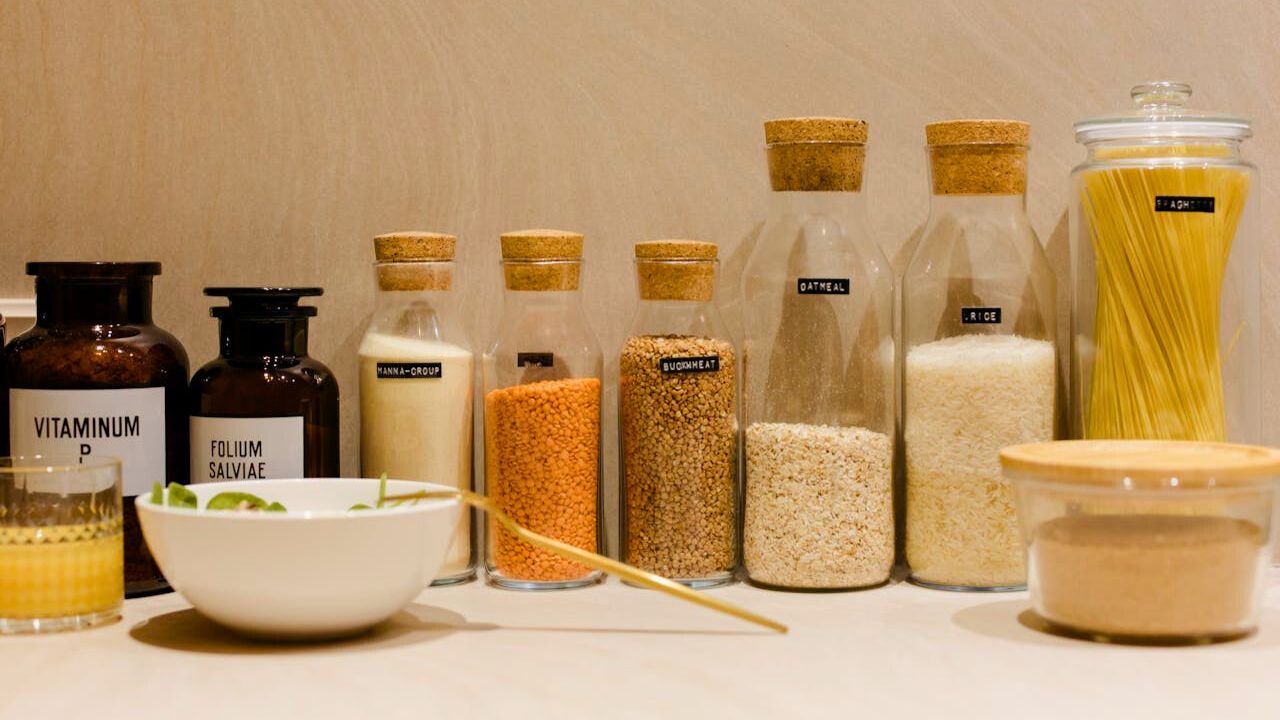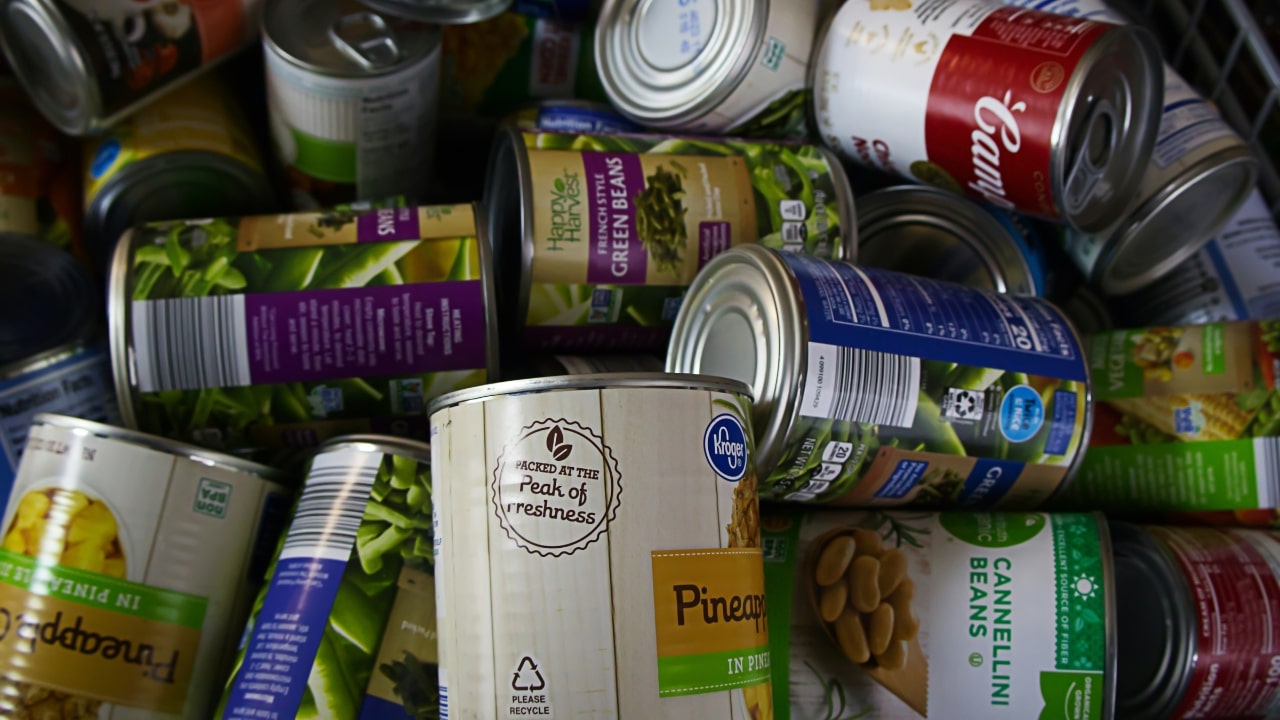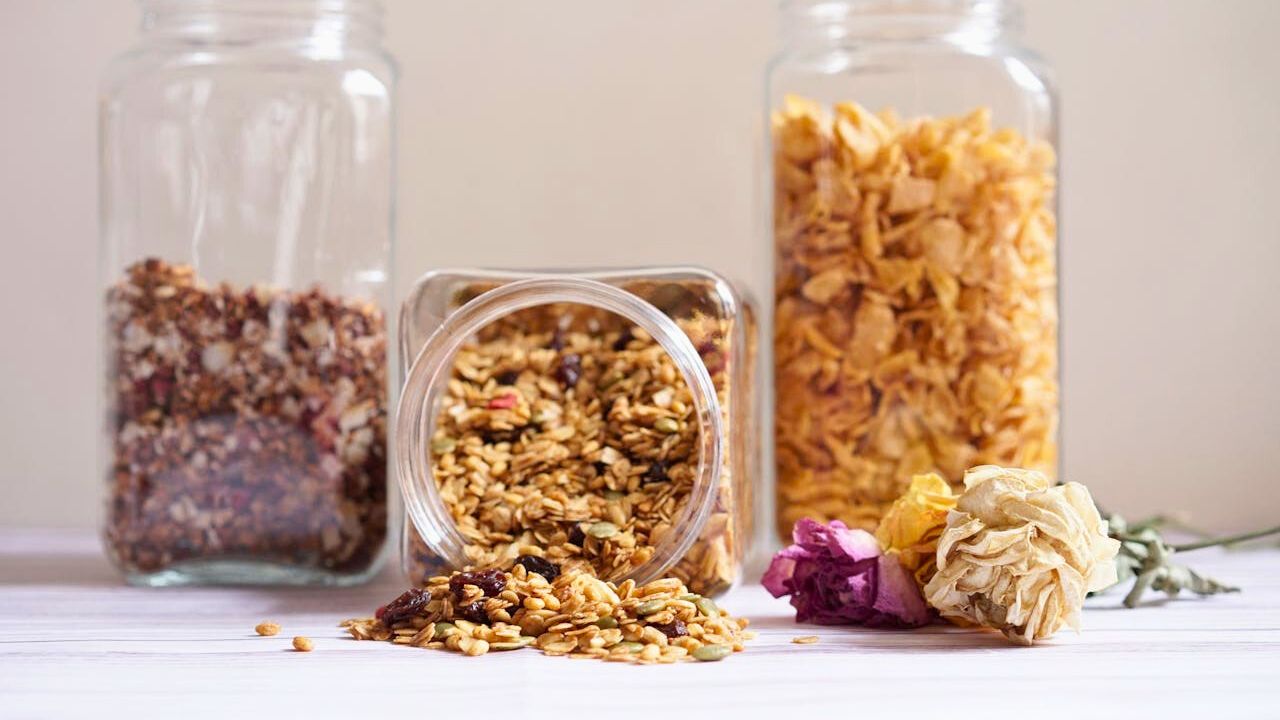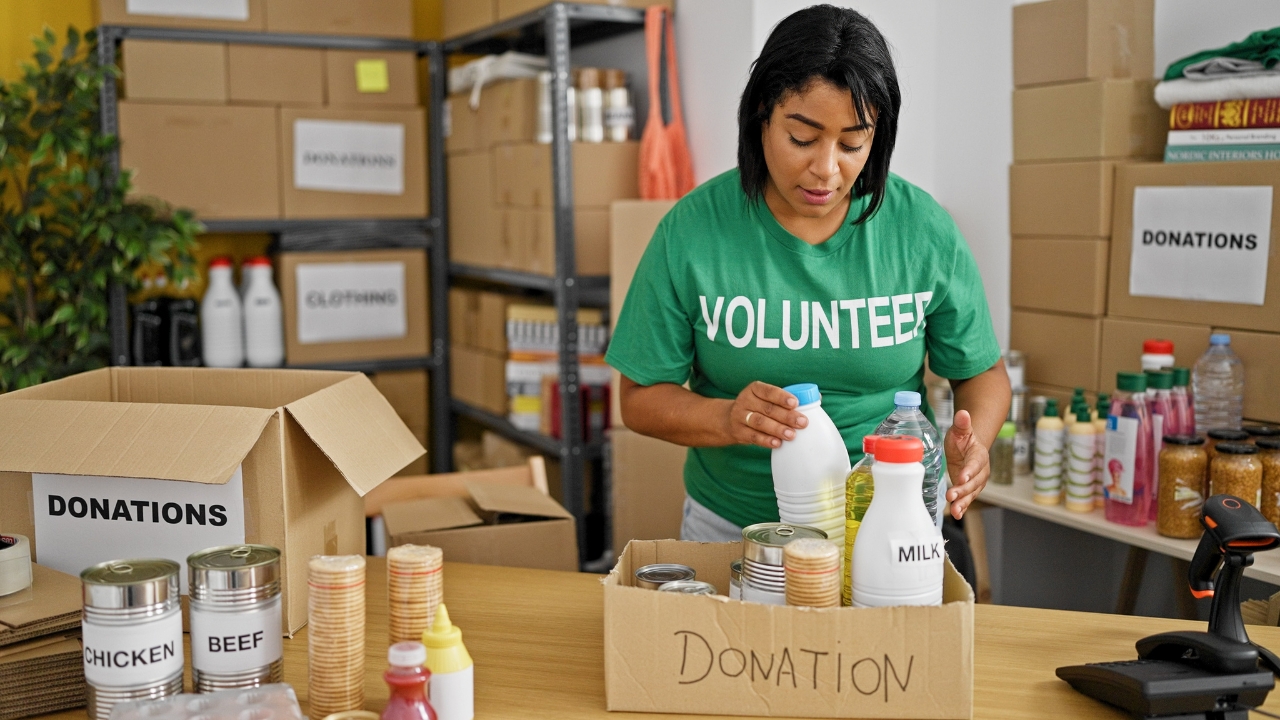What food pantries need most this month and what not to donate
Food pantries see a big surge in donations around the holidays, which is great—but they don’t need random pantry clean-outs full of expired soup and things no one knows how to cook. They’re trying to pack boxes with practical, safe, and culturally useful items.
Here’s what most pantries are really asking for, and a few things you should skip.
Shelf-stable proteins (top priority)

Peanut butter, canned tuna, canned chicken, and canned beans are always high on “most needed” lists. They’re filling, versatile, and don’t require special equipment to use. Aim for standard flavors and easy-open lids whenever you can.
Rice, pasta, and whole grains

Dry rice, pasta, oats, and other grains stretch meals and pair well with almost any pantry item. Food banks specifically call out whole grains and oats as helpful basics. These are the items that turn a single can of sauce or beans into several meals.
Canned fruits and vegetables (low sugar, low salt)

Canned vegetables and fruits in juice or water (not heavy syrup) are in constant demand. They’re easy to store, kid-friendly, and usable even for families without full kitchens. Choose things people recognize and know how to use—corn, green beans, peaches, pineapple, etc.
Shelf-stable milk and basic breakfast items

Shelf-stable milk, cereal with decent fiber, and oatmeal are common requests. Many families rely on pantries for breakfast foods, especially when kids are home from school. Think basic cereals instead of ultra-sugary ones.
Baby items and special diets

Formula, baby food, and diapers are often in short supply and hugely appreciated. If your local pantry serves a large senior or medically fragile population, they may also welcome low-sodium or diabetic-friendly items. When in doubt, check their website or call—they often list priority needs.
Toiletries and household basics

Not every pantry takes non-food items, but many do. Soap, shampoo, toothbrushes, toothpaste, pads/tampons, and laundry detergent are often requested essentials that aren’t covered by food assistance programs. These stretch budgets just as much as food does.
What not to donate: expired or damaged food

Skip anything past its expiration or “best by” date, or cans that are heavily dented or rusted. Food banks are clear: they can’t safely distribute these, especially if dents are near seams. If you wouldn’t feed it to your family, don’t drop it in a donation bin.
What not to donate: homemade, opened, or weird one-offs

Most pantries can’t accept homemade items or opened packages for safety reasons. Also, that jar of exotic sauce no one in your house liked is unlikely to help a family that needs practical staples. Stick to widely used basics instead of specialty foods only a few people will want.
Watch the packaging

Glass jars break easily during transport, and many food banks prefer cans or sturdy plastic. If you do donate glass, pack it carefully and check your local pantry’s rules first. Always make sure seals are intact and packaging is clean.
Check your local pantry’s wish list

Needs change by region and season. Some places have enough canned corn to last a year but are desperate for cooking oil and spices. Many food banks keep an updated list online of their most-needed items. A quick look before you shop helps you spend your money on things that actually fill gaps.
Like Fix It Homestead’s content? Be sure to follow us.
- I made Joanna Gaines’s Friendsgiving casserole and here is what I would keep
- Pump Shotguns That Jam the Moment You Actually Need Them
- The First 5 Things Guests Notice About Your Living Room at Christmas
- What Caliber Works Best for Groundhogs, Armadillos, and Other Digging Pests?
- Rifles worth keeping by the back door on any rural property
*This article was developed with AI-powered tools and has been carefully reviewed by our editors.







